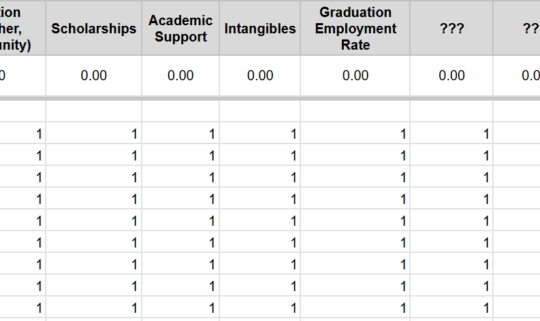Letters of recommendation play a crucial role in both admissions and scholarship application processes. They stand alongside transcripts and test scores as key factors in admissions decisions. As a student, it’s important to know how to request a letter of recommendation for college admissions and scholarships effectively.
Now, let’s begin the process to ensure you secure the strongest recommendations for your applications!
Why do letters of recommendation matter?
Grades and test scores provide admissions officers with a measure of your academic performance in high school, while essays and recommendations reveal your character. It’s crucial that your primary recommendations reflect your qualities as a student and learner, which doesn’t necessarily mean they should only come from classes where you earned the highest grades. Scholarships and colleges are particularly interested in the insights of your teachers and guidance counselors.
Now, let’s discuss the approach to requesting a letter of recommendation from your teachers and guidance counselors.
How to ask for a letter of recommendation
Having explored what a letter of recommendation is and its importance, let’s examine the approach to requesting a letter of recommendation from your teachers.
Choose teachers from your junior year
College admissions officers prefer recent letters of recommendation, suggesting that students should prioritize teachers from their junior year. However, it may be acceptable to ask a teacher from another year if they know you well and have taught you for several semesters. Nonetheless, the most recent teacher is often the best choice. While senior year teachers are an option, the limited time may not allow them to know you well, which is crucial if you’re applying Early Decision or Early Action.
When soliciting recommendation letters, always pose it as a question, never assuming a teacher will agree to write one. It’s advisable to email teachers, requesting a brief meeting after class to discuss this.
Your email can look something like this:
Dear Mr. Smith,
I would like to inquire if you might have a moment to speak with me after class on Wednesday. I need to ask you about a letter of recommendation. Should Wednesday be inconvenient, I am flexible and can accommodate another time that suits you.
Thank you very much,
[Your Name]
Focus on teachers/counselors who know you well
A common mistake among students is to focus solely on grades. Instead, consider the teachers who understand you well as a student. In my experience, if your teachers or counselors have been in their roles for a while, they’ve likely written over 50 letters of recommendation for students. Many teachers/counselors will ask for the student to provide a “brag sheet” to assist them in providing the best possible recommendation.
Align your recommendation letters to your areas of academic interest
As college admissions officers review recommendation letters, they envision you as a future student on their campus. Your letters should ideally reinforce your academic interests. For instance, if you aim to major in English, at least one recommendation ought to come from an English teacher. Aspiring engineers should seek a recommendation from a math or science teacher. It’s advisable to obtain letters from teachers in two distinct academic subjects, a guideline that applies to undecided majors as well.
Ask your teachers by the end of junior year
Some teachers like to write recommendation letters over the summer, so it is a nice courtesy to ask them to write a recommendation letter before the summer starts. The other upside to this is that you will secure your recommendations early. If you did not request a letter of recommendation before you left for summer of your junior year, you need to get on requesting ASAP. Letters of recommendation, when done well, take time. It is your responsibility to give your teachers/counselors time to complete. Some teachers will have a “cap” on the number of recommendations they will write, so this will guarantee that you can secure recommendations from your top teachers.
If you are in a situation where a teacher can’t write you a recommendation, don’t get discouraged! Thank them and identify another teacher who might be able to write for you. If you are having trouble with this, your school counselor can be a good person to ask for advice.
Next steps after your recommendation request
Your work is not done after asking for your recommendations! There are still a few steps left!
Double-check to ensure that your recommendation is submitted
Being proactive is key, so it’s wise to monitor your status portals for scholarships or college admissions to confirm the submission of your recommendation letters. If you’re worried that a recommendation hasn’t been submitted, consider sending a brief message to your recommender inquiring if they require any additional information from you. This approach can serve as a gentle reminder for your teacher or counselor.
Should there be any uncertainty, reaching out to the admissions office via phone or email to verify the status of your recommendation letter is also advisable.
Don’t forget to thank your recommendations
Writing recommendations requires considerable time and effort. It’s important to express gratitude to those who write them for you—earning extra appreciation if you opt for a handwritten thank you note.







